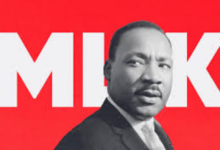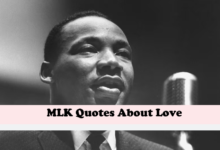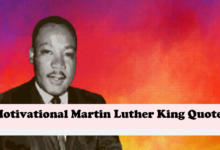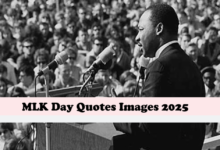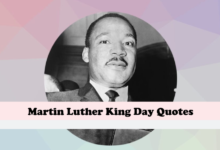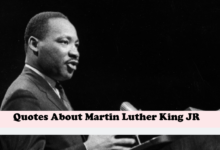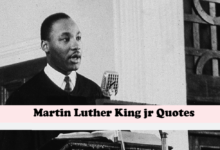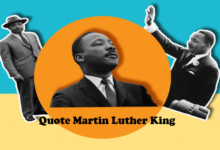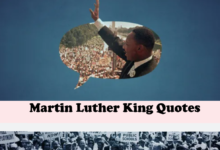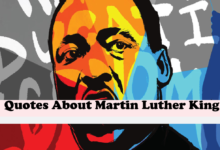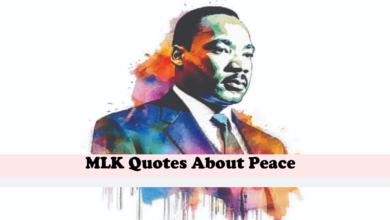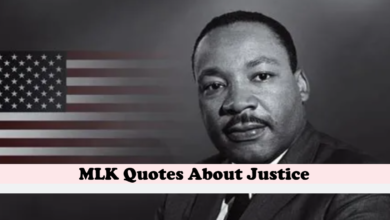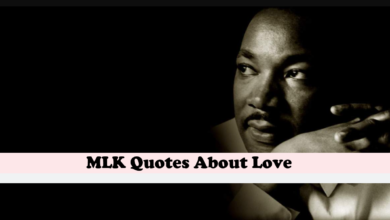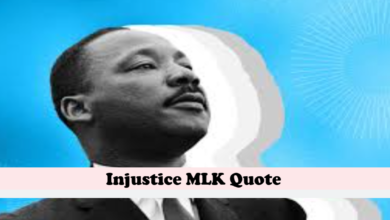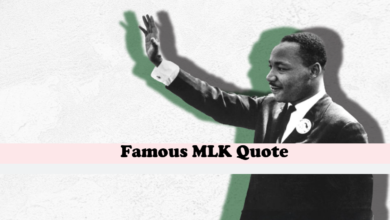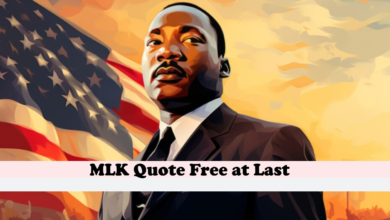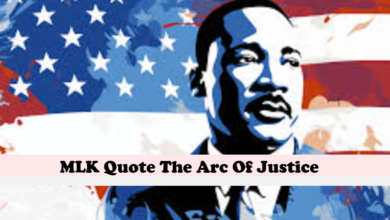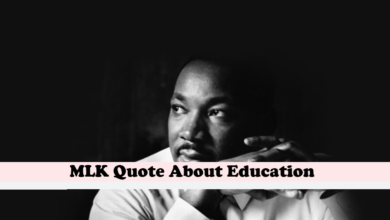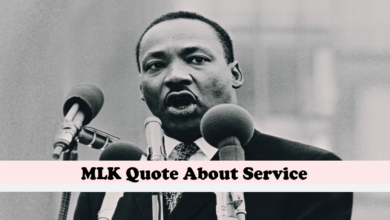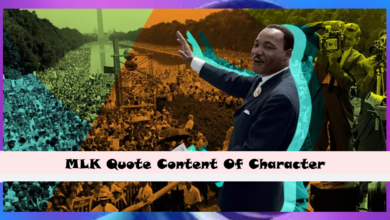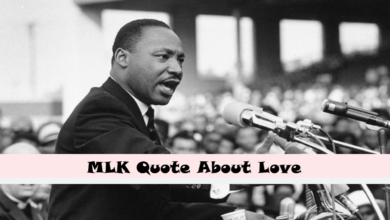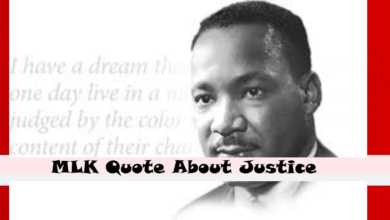MLK Quote I Have A Dream
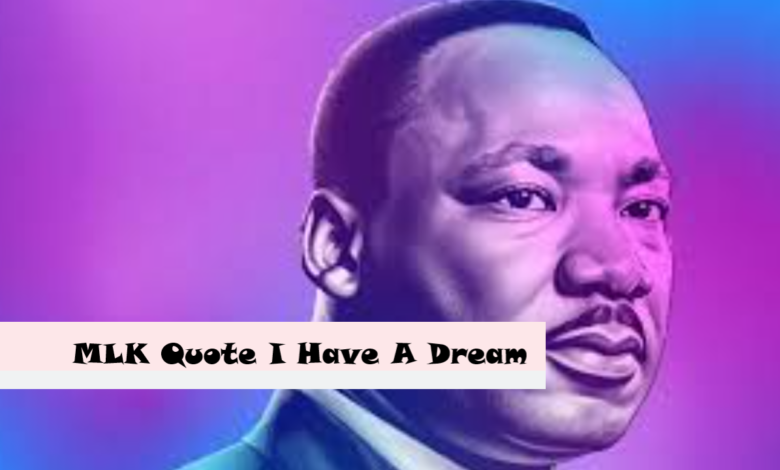
On August 28, 1963, during the historic March on Washington for Jobs and Freedom, Dr. Martin Luther King Jr. delivered one of the most iconic speeches in American history. His “I Have a Dream” speech not only captured the struggles of African Americans but also offered a vision of hope and unity that transcended racial divides. The speech is remembered for its powerful call for justice, equality, and peace, and continues to inspire millions worldwide. Dr. King’s vision of a better future, free from the oppression and discrimination that plagued America at the time, was articulated most clearly in the unforgettable words: “I have a dream that one day this nation will rise up and live out the true meaning of its creed: ‘We hold these truths to be self-evident, that all men are created equal.’”
In this blog post, we will explore the meaning behind this iconic quote, the context in which it was delivered, and its continued relevance in today’s world. By understanding Dr. King’s vision through the lens of the “I Have a Dream” speech, we can see how his words continue to challenge us to strive for a more just and inclusive society.
MLK Quote I Have A Dream
To truly understand the power of Dr. King’s words, it’s essential to consider the historical context in which the speech was delivered. By the early 1960s, the Civil Rights Movement was gaining momentum, but racial segregation and discrimination were still rampant in the United States. The fight for equal rights for African Americans had been going on for decades, yet many of the basic freedoms promised by the U.S. Constitution—such as the right to vote, the right to equal education, and the right to fair treatment under the law—were still denied to Black people in many parts of the country, particularly in the South.
The March on Washington, where Dr. King gave his speech, was a pivotal moment in the Civil Rights Movement. It was organized to demand an end to racial segregation, secure economic justice for Black Americans, and push for federal legislation to ensure civil rights protections. Over 250,000 people, both Black and white, gathered in the nation’s capital to show solidarity and call for change. The march was peaceful, yet powerful, and the “I Have a Dream” speech became its defining moment.
“Darkness cannot drive out darkness: only light can do that. Hate cannot drive out hate: only love can do that.”
― Martin Luther King Jr.,
“I have decided to stick to love…Hate is too great a burden to bear.”
― Martin Luther King Jr.
“I have decided to stick to love…Hate is too great a burden to bear.”
― Martin Luther King Jr.
“Our lives begin to end the day we become silent about things that matter.”
― Martin Luther King Jr.
“In the end, we will remember not the words of our enemies, but the silence of our friends.”
― Martin Luther King Jr.
Faith is taking the first step even when you can’t see the whole staircase.”
― Martin Luther King Jr.
“If you can’t fly then run, if you can’t run then walk, if you can’t walk then crawl, but whatever you do you have to keep moving forward.”
― Martin Luther King Jr.
“But I know, somehow, that only when it is dark enough can you see the stars.”
― Martin Luther King, Jr.
“Let no man pull you so low as to hate him.”
― Martin Luther King Jr., A Knock at Midnight: Inspiration from the Great Sermons of Reverend Martin Luther King, Jr.
“There comes a time when one must take a position that is neither safe, nor politic, nor popular, but he must take it because conscience tells him it is right.”
― Martin Luther King Jr., A Testament of Hope: The Essential Writings and Speeches
“Nothing in the world is more dangerous than sincere ignorance and conscientious stupidity.”
― Martin Luther King Jr.
“The ultimate measure of a man is not where he stands in moments of comfort and convenience, but where he stands at times of challenge and controversy.”
― Martin Luther King Jr.
“Intelligence plus character-that is the goal of true education.”
― Martin Luther King Jr.
“Everybody can be great…because anybody can serve. You don’t have to have a college degree to serve. You don’t have to make your subject and verb agree to serve. You only need a heart full of grace. A soul generated by love.”
― Martin Luther King Jr.
“No one really knows why they are alive until they know what they’d die for.”
― Martin Luther King Jr.
“We must come to see that the end we seek is a society at peace with itself, a society that can live with its conscience.”
― Martin Luther King Jr.
“Injustice anywhere is a threat to justice everywhere.”
― Martin Luther King Jr.
“A man who won’t die for something is not fit to live.”
― Martin Luther King Jr., The Autobiography of Martin Luther King, Jr.
“Forgiveness is not an occasional act, it is a constant attitude.”
― Martin Luther King Jr.
“If a man is called to be a street sweeper, he should sweep streets even as a Michaelangelo painted, or Beethoven composed music or Shakespeare wrote poetry. He should sweep streets so well that all the hosts of heaven and earth will pause to say, ‘Here lived a great street sweeper who did his job well.”
― Martin Luther King Jr.
“We must accept finite disappointment, but never lose infinite hope.”
― Martin Luther King Jr.
“Those who are not looking for happiness are the most likely to find it, because those who are searching forget that the surest way to be happy is to seek happiness for others.”
― Martin Luther King Jr.
“I have a dream that my four little children will one day live in a nation where they will not be judged by the color of their skin but by the content of their character.”
― Martin Luther King Jr.
“Never forget that everything Hitler did in Germany was legal.”
― Martin Luther King Jr.
“We must live together as brothers or perish together as fools.”
― Martin Luther King Jr.
“Science investigates; religion interprets. Science gives man knowledge, which is power; religion gives man wisdom, which is control. Science deals mainly with facts; religion deals mainly with values. The two are not rivals.”
― Martin Luther King, Jr
The Essence of the “I Have a Dream” Quote
At the heart of the “I Have a Dream” speech was Dr. King’s vision of racial equality, a vision that rejected the harsh realities of segregation and racism and instead focused on the values of justice, love, and brotherhood. His dream was rooted in the belief that America could live up to its founding ideals of liberty and equality for all people, regardless of race.
One of the most powerful elements of the speech was Dr. King’s invocation of the American creed, specifically the line from the Declaration of Independence: “We hold these truths to be self-evident, that all men are created equal.” By connecting the struggle for civil rights to the nation’s founding principles, Dr. King was not just challenging the injustices of the present but also reminding the nation of the promises it had made at its inception. His dream was not a fantasy, but a call to honor the core values upon which the nation was built.
The “I Have a Dream” quote also envisioned a future where racial division and inequality no longer existed. King dreamed of a time when children of all races would be able to play together in harmony, when Black people would be treated with dignity and respect, and when the country would be united in its commitment to justice and equality. His dream transcended racial boundaries, offering hope for a more inclusive and compassionate society where people were judged by the content of their character, not the color of their skin.
The Call for Nonviolent Resistance
Dr. King’s dream was not just about the end of racial segregation, but also about the means by which change would be achieved. Throughout the speech, and throughout his life, King advocated for nonviolent resistance as the most powerful weapon in the fight for justice. He believed that violence only perpetuated hatred and division, while nonviolence had the power to bring about true and lasting change.
In the “I Have a Dream” speech, King emphasized that the struggle for civil rights must continue with faith and determination, but without resorting to violence. He famously said, “We must forever conduct our struggle on the high plane of dignity and discipline. We must not allow our creative protest to degenerate into physical violence.” This message was integral to his broader philosophy of nonviolent resistance, which had been shaped by figures like Mahatma Gandhi and which he had applied to the Civil Rights Movement throughout his leadership.
Nonviolence was central to Dr. King’s dream, as it represented the belief that true justice could only be achieved through peaceful means, with love and respect for all people. It was a call to confront hatred with love, and injustice with a commitment to fairness. King’s commitment to nonviolence resonated beyond the Civil Rights Movement, influencing other global struggles for freedom and justice, including anti-apartheid movements and campaigns for women’s rights.
The Continuing Relevance of Dr. King’s Dream
Though much progress has been made since Dr. King delivered his “I Have a Dream” speech in 1963, his vision for racial equality and social justice remains as relevant today as ever. While segregation has been legally dismantled and significant advancements have been made in the fight for civil rights, the dream of a society where people are judged by the content of their character rather than the color of their skin is still a work in progress.
In the decades since King’s speech, the United States has witnessed significant improvements in racial relations, including the election of the first African American president, Barack Obama, and the passage of laws aimed at protecting the civil rights of marginalized communities. However, issues such as police brutality, mass incarceration, and economic inequality disproportionately affect Black Americans, indicating that racial justice is still a challenge.
Moreover, King’s call for unity and understanding between people of different races is crucial in today’s climate of polarization and division. As the country grapples with political and social fragmentation, Dr. King’s dream of a united, harmonious society where individuals are valued for their character and not their race offers a powerful and much-needed vision for healing and progress.
King’s Dream as a Call to Action
Dr. King’s “I Have a Dream” speech was not just a visionary statement—it was also a call to action. His dream was not to be passively hoped for, but actively worked toward. He urged those listening to his speech, and future generations, to remain steadfast in the pursuit of justice and equality.
As King once said, “The time is always right to do what is right.” His message remains clear: the dream of a just society is a dream that requires ongoing effort, commitment, and action. We must continue to challenge systems of oppression, fight against racial inequality, and build bridges of understanding between communities. Whether through advocating for policy changes, supporting organizations that promote social justice, or standing in solidarity with marginalized groups, we all have a role to play in realizing Dr. King’s dream.
Dr. Martin Luther King Jr.’s “I Have a Dream” speech stands as a powerful reminder of the potential for positive change in the world. His dream of a nation where people are judged by the content of their character, not the color of their skin, is one that continues to inspire and challenge us today. While we have made strides toward racial equality, King’s vision calls on us to keep moving forward—to live up to the promises of justice, equality, and unity that are enshrined in the nation’s founding principles.
As we reflect on King’s dream, let us renew our commitment to his values of nonviolence, equality, and love. It is through our collective efforts that we can bring King’s dream to life, ensuring that future generations will live in a world where justice and fairness are the true measure of every individual.
